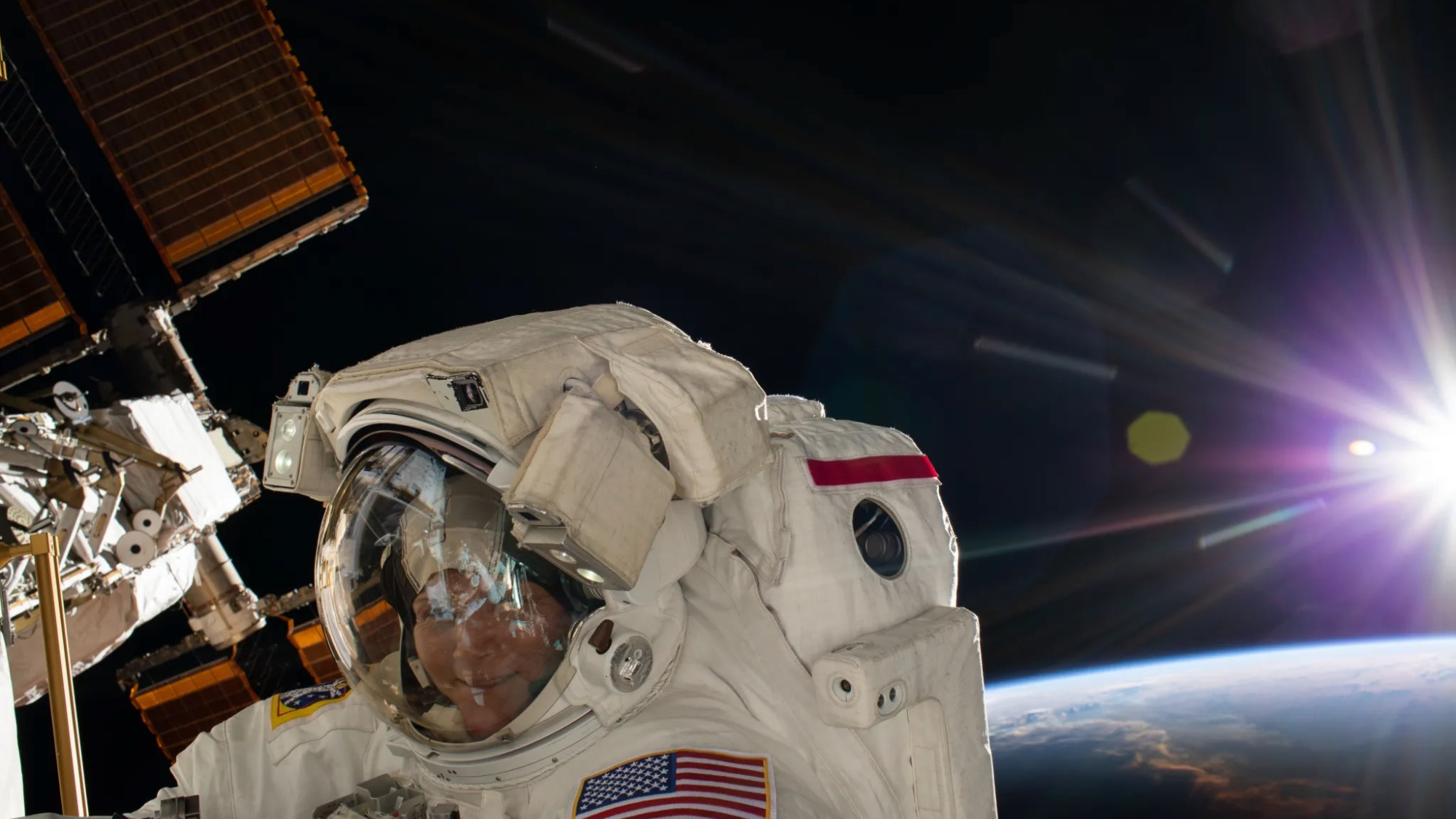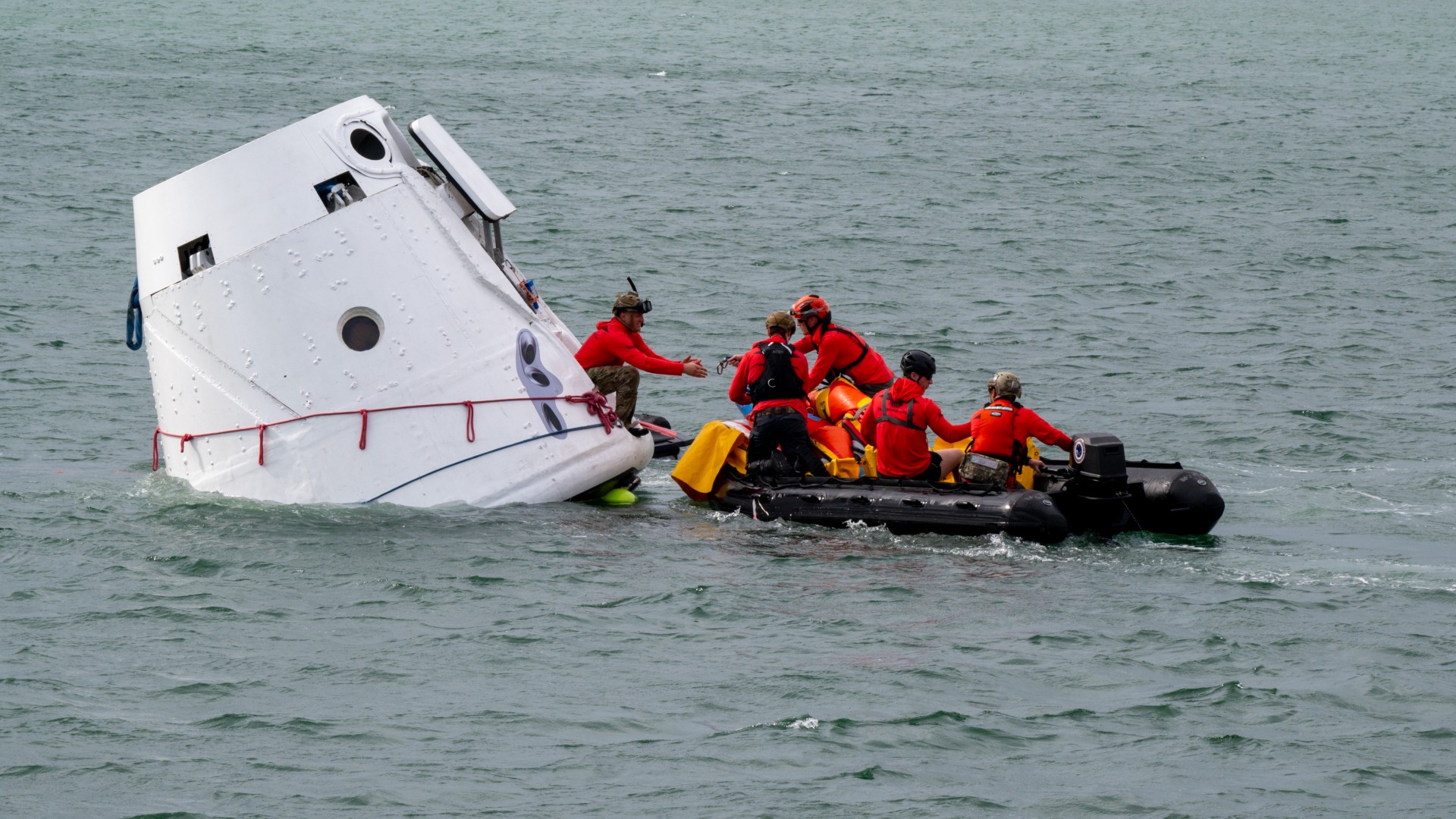Russia Plans 500-Day Mock Mars Mission
Russian space researchers will lock six men in a metal tube for more than year in an effort to mimic the stresses and challenges of a manned mission to Mars.
The 500 Days experiment, under development by the Russian Institute of Medical and Biological Problems, will isolate human volunteers in a mock space station module for -- as its namesake suggests -- a complete 500 days to study how a long mission to Mars might affect its human crew.
"Obviously, we're very interested in the results," NASA spokeswoman Dolores Beasley said of the long-duration study during a telephone interview. "It is a high priority for us."
During the 500 Days study, six volunteers will depend on a preset limit of supplies, including about 5 tons of food and oxygen and 3 tons of water. A doctor will accompany volunteers inside the module to treat illnesses and injuries. Volunteers will only be allowed to quit the experiment if the develop a severe ailment of psychological stress.
But experiment participation is not solely reserved for Russian volunteers, institute officials added.
"We have informed our American colleagues that we plan to start an imitation of a manned flight to Mars with the help of volunteers in 2006," Yevgeny Ilyin, deputy director for science at the institute, told Russia's Interfax news agency during a recent Russian-American working group meeting in Moscow.
NASA has been invited by Russian scientists to join in on the Mars mock mission, but a final decision by the U.S. space agency is pending, said NASA's Guy Fogleman, NASA director of the Office of Biological and Physical Research's Bioastronautics Research Division, to Russian reporters.
Get the Space.com Newsletter
Breaking space news, the latest updates on rocket launches, skywatching events and more!
The space agency has not yet decided whether it will participate, though a decision is anticipated some time in the next few months, Beasley added.
NASA astronauts currently serve six-month missions aboard the International Space Station (ISS), though Russian flight controllers have lobbied to increase joint U.S.-Russian missions up to one-year in duration.
"Any medical and biological experiments made on board the International Space Station aim at long-distance space flights of the future," Ilyin said.
The U.S. single spaceflight endurance record falls on the crew of ISS Expedition 4, Carl Walz and Dan Bursch, who lived aboard the space station for a total of 196 days.
Veteran Russian cosmonaut Valery Polyakov, a medical doctor, set the current world record for the longest continuous spaceflight when he spent about 438 aboard Russia's Mir space station between 1994 and 1995.
Polyakov told Interfax reporters that the 500 Days experiment will not include female volunteers.
Join our Space Forums to keep talking space on the latest missions, night sky and more! And if you have a news tip, correction or comment, let us know at: community@space.com.

Tariq is the Editor-in-Chief of Space.com and joined the team in 2001, first as an intern and staff writer, and later as an editor. He covers human spaceflight, exploration and space science, as well as skywatching and entertainment. He became Space.com's Managing Editor in 2009 and Editor-in-Chief in 2019. Before joining Space.com, Tariq was a staff reporter for The Los Angeles Times covering education and city beats in La Habra, Fullerton and Huntington Beach. In October 2022, Tariq received the Harry Kolcum Award for excellence in space reporting from the National Space Club Florida Committee. He is also an Eagle Scout (yes, he has the Space Exploration merit badge) and went to Space Camp four times as a kid and a fifth time as an adult. He has journalism degrees from the University of Southern California and New York University. You can find Tariq at Space.com and as the co-host to the This Week In Space podcast with space historian Rod Pyle on the TWiT network. To see his latest project, you can follow Tariq on Twitter @tariqjmalik.









